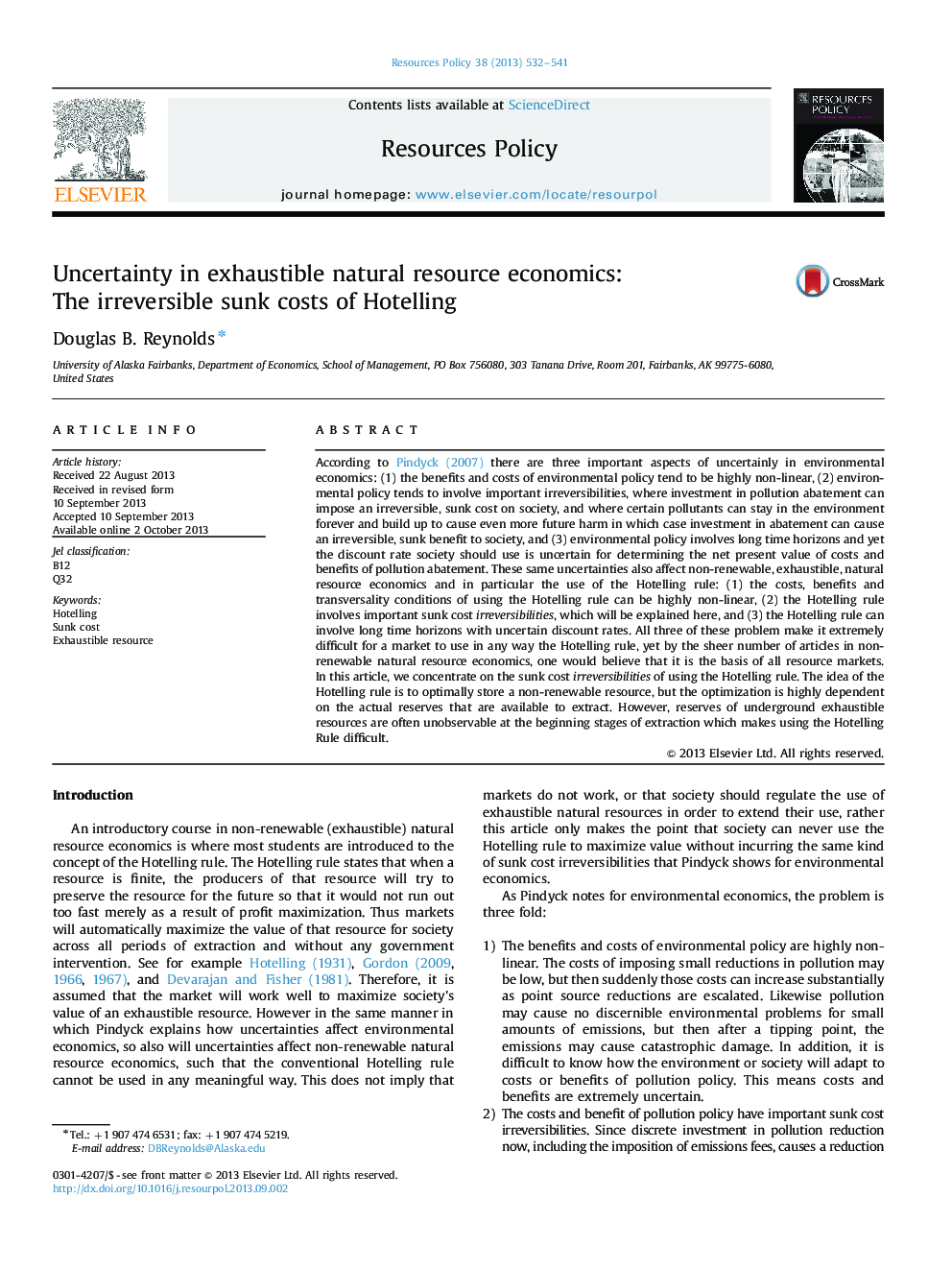| کد مقاله | کد نشریه | سال انتشار | مقاله انگلیسی | نسخه تمام متن |
|---|---|---|---|---|
| 10484046 | 934841 | 2013 | 10 صفحه PDF | دانلود رایگان |
عنوان انگلیسی مقاله ISI
Uncertainty in exhaustible natural resource economics: The irreversible sunk costs of Hotelling
ترجمه فارسی عنوان
عدم اطمینان در اقتصاد منابع طبیعی قابل ملاحظه: هزینه های غیرقابل برگشتی هتللیگ
دانلود مقاله + سفارش ترجمه
دانلود مقاله ISI انگلیسی
رایگان برای ایرانیان
موضوعات مرتبط
مهندسی و علوم پایه
علوم زمین و سیارات
زمین شناسی اقتصادی
چکیده انگلیسی
According to Pindyck (2007) there are three important aspects of uncertainly in environmental economics: (1) the benefits and costs of environmental policy tend to be highly non-linear, (2) environmental policy tends to involve important irreversibilities, where investment in pollution abatement can impose an irreversible, sunk cost on society, and where certain pollutants can stay in the environment forever and build up to cause even more future harm in which case investment in abatement can cause an irreversible, sunk benefit to society, and (3) environmental policy involves long time horizons and yet the discount rate society should use is uncertain for determining the net present value of costs and benefits of pollution abatement. These same uncertainties also affect non-renewable, exhaustible, natural resource economics and in particular the use of the Hotelling rule: (1) the costs, benefits and transversality conditions of using the Hotelling rule can be highly non-linear, (2) the Hotelling rule involves important sunk cost irreversibilities, which will be explained here, and (3) the Hotelling rule can involve long time horizons with uncertain discount rates. All three of these problem make it extremely difficult for a market to use in any way the Hotelling rule, yet by the sheer number of articles in non-renewable natural resource economics, one would believe that it is the basis of all resource markets. In this article, we concentrate on the sunk cost irreversibilities of using the Hotelling rule. The idea of the Hotelling rule is to optimally store a non-renewable resource, but the optimization is highly dependent on the actual reserves that are available to extract. However, reserves of underground exhaustible resources are often unobservable at the beginning stages of extraction which makes using the Hotelling Rule difficult.
ناشر
Database: Elsevier - ScienceDirect (ساینس دایرکت)
Journal: Resources Policy - Volume 38, Issue 4, December 2013, Pages 532-541
Journal: Resources Policy - Volume 38, Issue 4, December 2013, Pages 532-541
نویسندگان
Douglas B. Reynolds,
